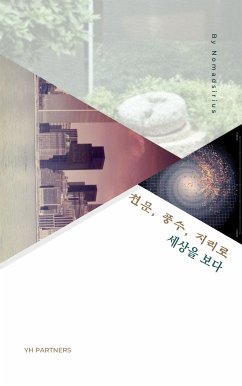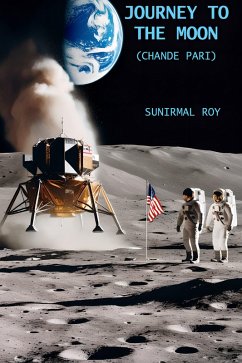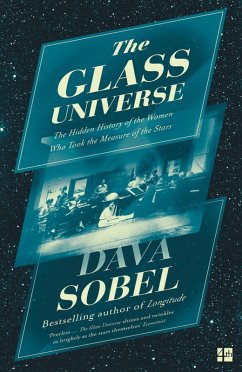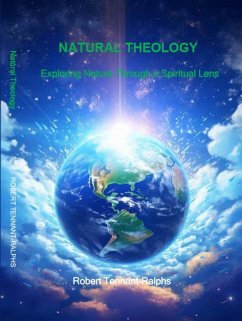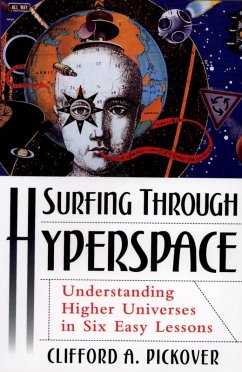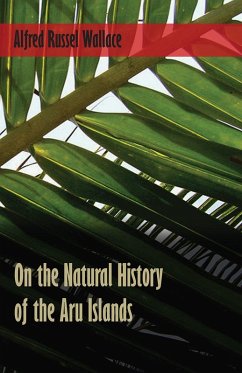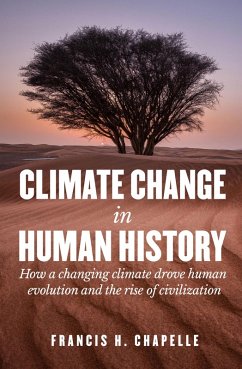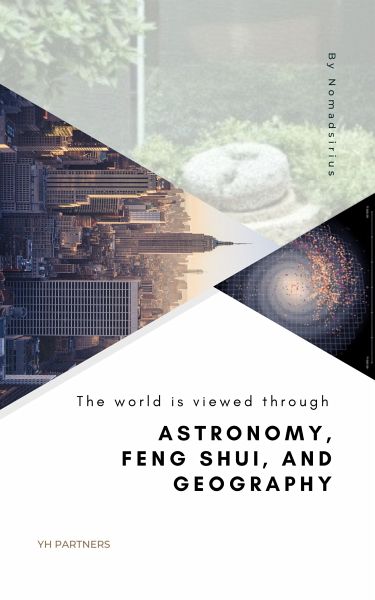
The world is viewed through Astronomy, Feng Shui, and Geography (eBook, ePUB)
Sofort per Download lieferbar
9,31 €
inkl. MwSt.

PAYBACK Punkte
0 °P sammeln!
Prologue.Hegel regards the Absolute Spirit as continuously developing dialectically. Hegel\'s insight into the development process of the Absolute Spirit through the dialectics of contradiction and opposition is remarkable, but it is a mistake to think that all spirits and things undergo infinite development. The spirit of modern Western civilization clashes sharply with the cyclical thinking of the East with its linear thinking. As material civilization reaches its zenith, just as spiritual civilization declines, cosmic spirit repeats its advance and retreat. Spirits and things intersect, adv...
Prologue.
Hegel regards the Absolute Spirit as continuously developing dialectically. Hegel\'s insight into the development process of the Absolute Spirit through the dialectics of contradiction and opposition is remarkable, but it is a mistake to think that all spirits and things undergo infinite development. The spirit of modern Western civilization clashes sharply with the cyclical thinking of the East with its linear thinking. As material civilization reaches its zenith, just as spiritual civilization declines, cosmic spirit repeats its advance and retreat. Spirits and things intersect, advancing and retreating, following a proud flow.
Feng Shui is a metaphysics of the land\'s vitality and resonance, nurturing the vitality of the land and people. In the historical time and space of where one resides, one gains macroscopic insights of metaphysics on the shapes of mountains and fields, the direction of the earth and water flow, through the perspective of Feng Shui. By knowing one\'s own Five Elements and the regional Five Elements, one seeks the wisdom of harmony and balance in the foundation of life. In the expanded realm of life in the global world, one broadens the range and scope of one\'s own Five Elements by utilizing the Five Elements of each country.
In a world that requires temporal, spatial, and structural perspectives, space and geography are important concepts for understanding the environment in which humans live and for finding their center. While historians view the world temporally, economists and political scientists view it structurally, but geographers view the world spatially. In an international environment of technological revolution and unending competition at the speed of light, a geographical perspective imbued with the contingency of space is the macroscopic reasoning power that organizes chaos.
The world is viewed through Astronomy, Feng Shui, and Geography.
Hegel regards the Absolute Spirit as continuously developing dialectically. Hegel\'s insight into the development process of the Absolute Spirit through the dialectics of contradiction and opposition is remarkable, but it is a mistake to think that all spirits and things undergo infinite development. The spirit of modern Western civilization clashes sharply with the cyclical thinking of the East with its linear thinking. As material civilization reaches its zenith, just as spiritual civilization declines, cosmic spirit repeats its advance and retreat. Spirits and things intersect, advancing and retreating, following a proud flow.
Feng Shui is a metaphysics of the land\'s vitality and resonance, nurturing the vitality of the land and people. In the historical time and space of where one resides, one gains macroscopic insights of metaphysics on the shapes of mountains and fields, the direction of the earth and water flow, through the perspective of Feng Shui. By knowing one\'s own Five Elements and the regional Five Elements, one seeks the wisdom of harmony and balance in the foundation of life. In the expanded realm of life in the global world, one broadens the range and scope of one\'s own Five Elements by utilizing the Five Elements of each country.
In a world that requires temporal, spatial, and structural perspectives, space and geography are important concepts for understanding the environment in which humans live and for finding their center. While historians view the world temporally, economists and political scientists view it structurally, but geographers view the world spatially. In an international environment of technological revolution and unending competition at the speed of light, a geographical perspective imbued with the contingency of space is the macroscopic reasoning power that organizes chaos.
The world is viewed through Astronomy, Feng Shui, and Geography.
Dieser Download kann aus rechtlichen Gründen nur mit Rechnungsadresse in A, B, BG, CY, CZ, D, DK, EW, E, FIN, F, GR, H, IRL, I, LT, L, LR, M, NL, PL, P, R, S, SLO, SK ausgeliefert werden.




